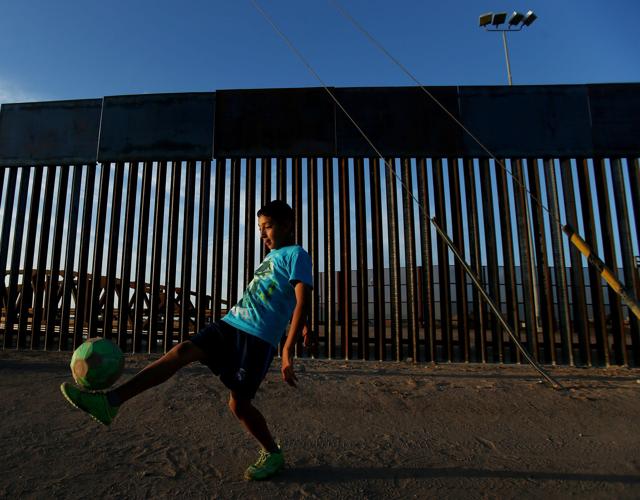When Donald Trump speaks about illegal immigration Wednesday evening in Phoenix, we know pretty well what the policy ideas will be.
We can expect him to double down on the plan to build a “beautiful” border wall, and we should expect him to be firm on deporting criminals who are illegally in the country. But we shouldn’t be surprised to see him soften his longstanding idea of mass deportations.
On that, Trump said last week, “We are going to be out with a decision very soon.”
It turns out, there’s pretty good consensus in the United States on what to do about these issues — and if he wants to improve his chances of beating Hillary Clinton, he needs to at least appear to overlap with that consensus.
Just as interesting as Trump’s policy pronouncements is what he’ll say between the lines. When he is talking about undocumented people, border enforcement and immigration generally, what will he be trying to communicate?
From the primary campaign all the way up to the Republican convention, Trump’s rhetoric on immigration and the border was hot and pointed. It’s what got the crowds riled up and energized him in turn. What he said was not just that we need to enforce our laws, but that our nation is under grave threat because of outsiders.
“The word is getting out that we have to stop illegal immigration. We have to,” he said in Phoenix in July last year. “We have a situation that’s absolutely out of control.”
That’s not true: Border apprehensions nationwide were at their lowest point last year since 1972. While the borders may not be under firm control, neither are they “absolutely out of control.”
Trump’s underlying point, though, seems to be broader.
He has also suggested America is falling apart because of refugees pouring in from Muslim countries, Latin American criminals coming across the Mexican line, and legal immigrants harming the well-being of native-born Americans by draining our resources and taking our jobs.
“My plan is the exact opposite of the radical and dangerous immigration policy of Hillary Clinton,” Trump said at the Republican National Convention last month. “Americans want relief from uncontrolled immigration. Communities want relief. Yet Hillary Clinton is proposing mass amnesty, mass immigration, and mass lawlessness.”
What you typically get from Trump’s pronouncements is more of a feeling than a detailed policy. On borders and immigration, the feeling is that of an American homeland and identity at risk.
That’s what the wall idea is about — a symbol of resistance to change as much as a practical solution — and it’s what Trump’s core supporters have responded to.
The truth be told, they’re right: The old America is not only under threat, but doomed. A deeply multicultural USA is coming into being, even if we guard every gap in all our borders. To the extent that this is the threat Trump’s supporters feel, they will be disappointed no matter who wins the election. The change in who we are will keep coming.
In any case, Trump needs more than his natural constituency if he’s going to avoid a loss in the presidential election.
That’s probably why you could see last week the softening in his position on people living illegally in the country who have been law-abiding and productive residents. Previously he talked about using a “deportation force” to remove them, but no longer.
Trump even polled the audience last week during a raucous town hall hosted by his favorite media personality, Sean Hannity of Fox News. It was as if he were trying to convince himself his new position would work with his own supporters.
The Pew Research Center, which has done years of deep analysis of these issues, found in a March survey that most Democrats and Republicans believe undocumented people should be allowed to stay in the country provided they meet certain requirements.
Overall, 75 percent of the population shares that opinion. Only 19 percent of those surveyed want every undocumented person in the country thrown out. So as much as that idea may rile up crowds, Trump needs to ditch it in Phoenix to attract more voters.
If he can moderate his policy while still cultivating the feeling of defending an American homeland under attack, maybe he can, at least, win the traditionally safe Republican state of Arizona.





